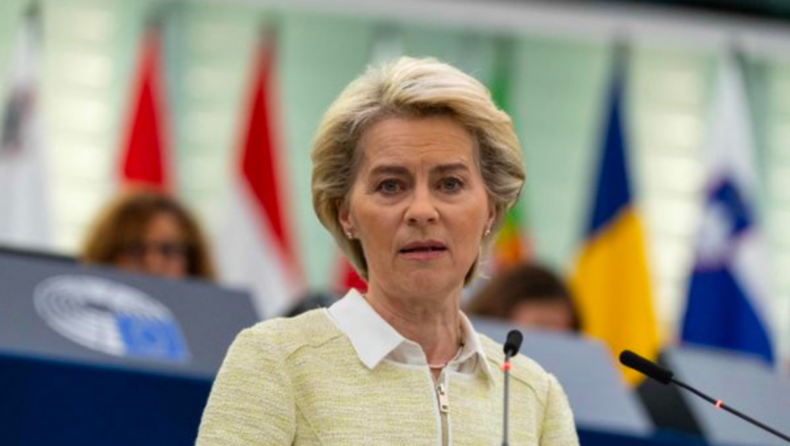Among the EU’s strongest measures against Russia, the bloc has suggested banning all oil imports and imposing penalties on anyone suspected of war crimes.

President of the European Commission, Ursula von der Leyen, stated that the package intended to increase pressure on Russia while minimizing harm to Europe. She stated that Russian crude oil will be phased out within six months. Hungary has dismissed the concept as unworkable, while the Czech and Slovak governments have expressed a desire for a transition phase.
For weeks, the EU has been concentrating on how to wean itself off Russian oil and gas. It has previously committed to cutting its reliance on imported gas to half by the end of 2022 and now wants to phase out crude oil and refined products over the next six months and entirely by the end of 2022.
“We will ensure an orderly phase-out of Russian oil,” the Commission president stated. EU ambassadors must first endorse the package, which is expected to be signed off on in the coming days. However, Hungarian government’s spokesperson, Zoltan Kovacs, stated that his nation will veto it in its present form: “They well understand that what they are proposing is contrary to Hungarian interests… and that if we do so, we would absolutely destroy the Hungarian economy.”
Slovakia and Hungary now rely on Russian oil and would be allowed until the end of 2024 to locate alternate supplies under the first plan. Slovakia’s finance minister indicated that his nation desired a three-year transition time, while Czech Prime Minister, Petr Fiala, indicated that his country would likewise seek a two- to three-year exemption to address pipeline capacity issues.

Russia contributed a quarter of the EU’s oil imports last year, with the Netherlands and Germany being the largest purchasers.
The Dutch government has stated that it intends to completely phase out Russian fossil fuel imports by the end of this year, while Germany has significantly cut its reliance on Russian oil imports, from 35% to 12%. The UK, which is no longer a member of the EU, is already phased out of Russian oil imports, which accounts for 8% of the total imports.
Dmitry Peskov, the Kremlin’s spokesperson, said Moscow was considering a variety of steps in response to the proposed embargo. Sanctions were a double-edged sword for Europeans and others, since the cost of living increased daily for European populations.
Ukrainian Foreign Minister, Dmytro Kuleba, stated in a social media video briefing that the EU’s gradual oil ban was “better than nothing.” Regardless of their reasoning, he argued, any country that rejected the oil embargo was involved in Russia’s atrocities in Ukraine.
Taking a stand against war crimes and propaganda
Along with calling for an embargo on Russian oil, the President of the European Commission said that penalties will be put on military officers accused of war crimes in Bucha and Mariupol.
“This sends another critical message to all offenders of the Kremlin’s war: We know who you are and you will face consequences,” Ms. von der Leyen told the European Parliament on Wednesday. There are proposals to impose a blanket ban on three of Russia’s largest state-run networks. “We have recognized these television outlets as aggressive mouthpieces for Putin’s falsehoods and misinformation,” Von der Leyen added.
Although the three networks were not identified, they are believed to include VGTRK’s popular Russian-language Rossiya and RTR Planeta programmes. The EU has already stopped two networks that broadcast in English, German, and Spanish, RT and Sputnik. Additionally, she claimed, a prohibition will be enforced on supplying European services to Russian enterprises via accountants, attorneys, and spin doctors.
Earlier sanctions targeted Russian banks, but the country’s largest bank, Sberbank, was left off the list due to its role in paying for Russian gas. Sberbank controls more than a third of Russia’s banking industry and is being phased out of the SWIFT global financial communications system. The plans also include two additional Russian banks.
Previous sanctions packages targeted a number of persons associated with the Kremlin and the invasion, and unsubstantiated reports indicated that the head of the Russian Orthodox Church, Patriarch Kirill, would be included on the next list, as would the family of Kremlin spokesperson, Dmitry Peskov.
Published By – Chirag Agrawal
Edited By – Chavvi Chaudhary













